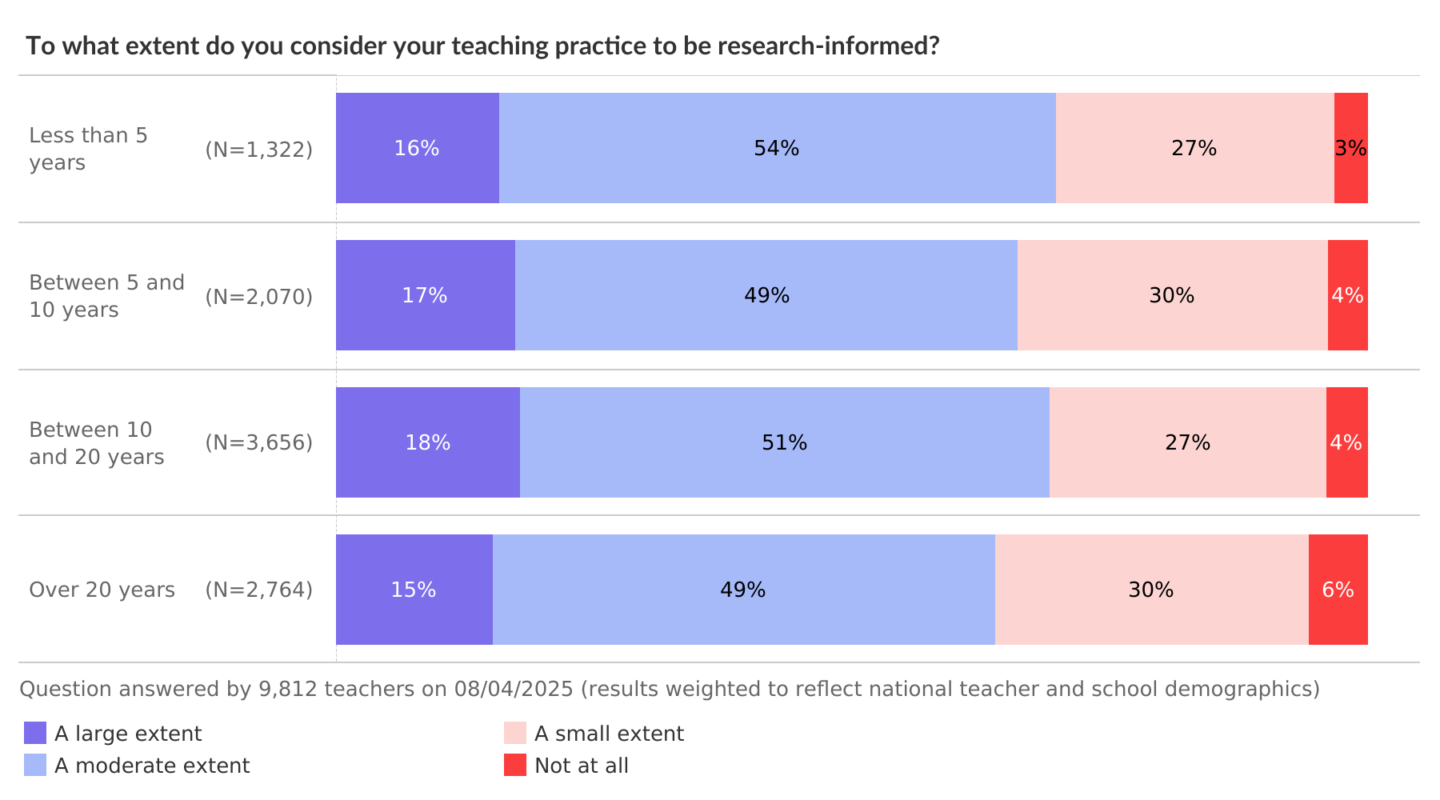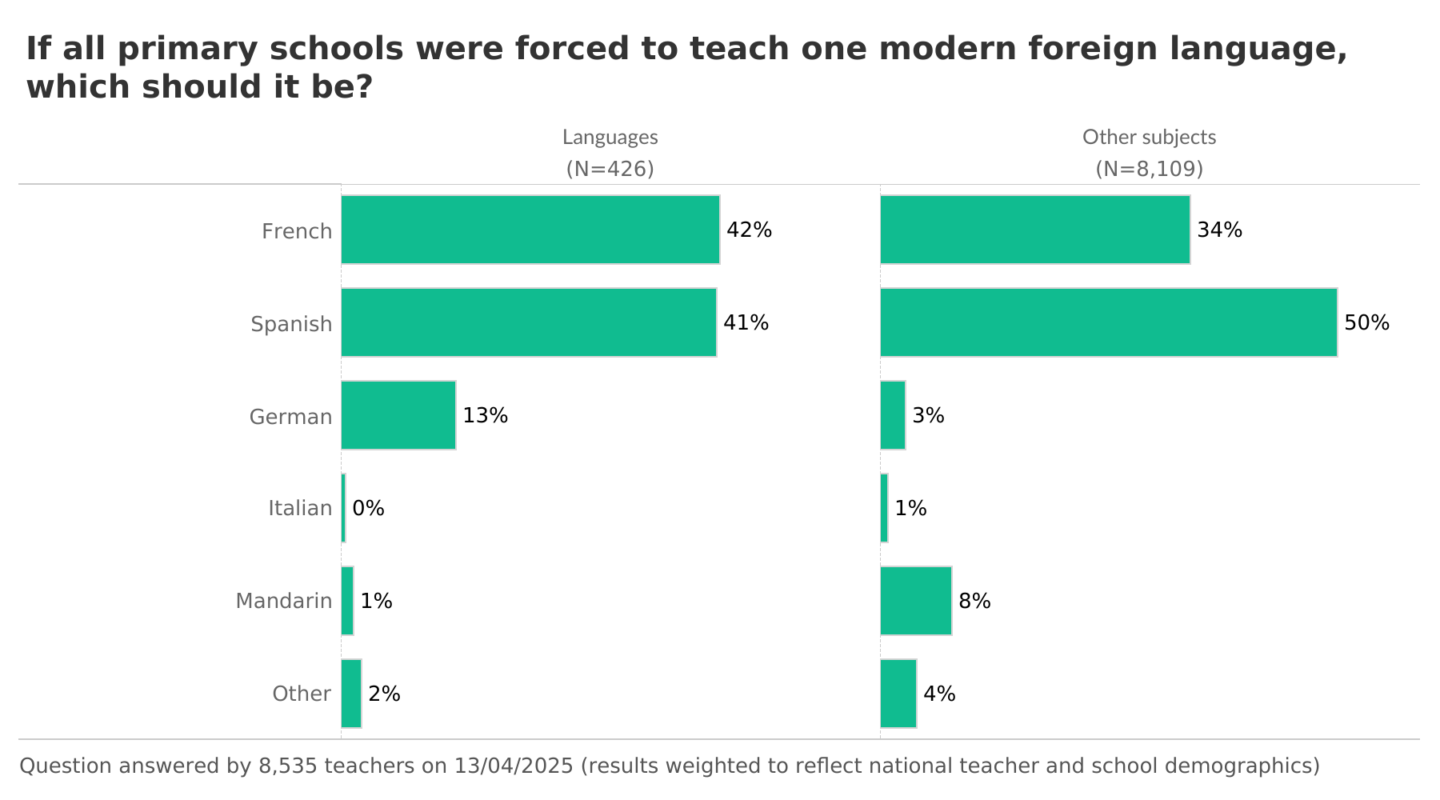
Hey there, Tappsters!
April’s new prize draw is well underway and soon one lucky Teacher Tapper will win a £500 spa voucher, courtesy of the Leadership Skills Foundation.
Taking part is easy: For every 5 days in a row you answer questions, you will receive an entry code.
At the end of the month, we share the winning codes on our socials and email the winners, too .
Read more about the details of the comp and see the full terms and conditions here.

Now, let’s find out what you said last week…
Easter Break 🐣
Most teachers are now on Easter Break – woohoo!
For most, next week means back to work – but many teachers in the midlands have another week off (59%) and a smaller number in Yorkshire and the North East also have another week out of the classroom (27%).
Research informed schools
Educational research can be a bit of a spicy topic. Organisations such as the Education Endowment Foundation (EEF) have worked to make research more accessible to schools. Before a new approach is adopted, leaders can check what the research says about its effectiveness.
But how many teachers consider their teaching to be research-informed? 17% say their practice is largely shaped by research. And if you expect that figure to vary by years of experience, you would be correct.
Teachers who have been teaching more than 20 years are twice as likely to say their teaching is “not at all” research-informed (6% vs 3%).
The biggest difference is between teachers who qualified before 2005 and those who qualified more recently: 64% of teachers with over 20 years’ experience say their teaching is research-informed to a large or moderate extent, compared to 70% of those with less than five years’ experience.

But has this always been the case? It seems not!
Although the trend is that ALL teachers are reporting to be more research-informed, the biggest increase has been among the teachers who have most recently joined the classroom. The number reporting their teaching is largely or moderately research-informed has risen by 7 percentage points, compared to 2 or 3 among the other groups.
This could possibly speak to a change following the introduction of the Early Career Framework (ECF) that was brought in for all teachers in 2021. The Department for Education brought in the ECF to give “support for early career teachers linked to the best available research evidence“. Perhaps these findings speak to the success of this new framework.
Teachers leading on research
Another reason why these numbers have changed might be due to more schools having a member of staff whose job is help staff find and engage with research. In 2019, 20% of schools had a teacher who was in charge of research, today, that number has risen to 31%.
However, this role is more commonly found in fee-paying schools (38%) and the most affluent state schools (34%) and less common in the most deprived state schools (27%).
Biscuits
Usain Bolt, Concorde, bullet trains — none come close to the speed at which biscuits vanish from the staffroom.
But of all the biscuits, which one is the most highly coveted by teachers?
The top three teacher biscuits
🥇 Chocolate digestive (40%)
🥈 Custard creams (13%)
🥉Chocolate chip cookies (11%) and bourbons (11%).
Hola, Spain!
Language learning in primary schools can be a tricky challenge. A mixture of squeezed curriculum time and teacher expertise can mean schools struggle to deliver the language lessons they might want. In fact, in 2022, 22% of primary teachers said that languages would be the subject they would remove from the National Curriculum.
However, if all primary schools were forced to teach one language, which language should that be?
Spanish comes out on top – BUT language teachers don’t feel quite as strongly.
Overall, 50% of teachers picked Spanish as the one language to learn in primary school – but just 41% of language teachers felt the same. In fact, French edges ahead as the most popular language among language teachers (42%).
Similarly, non-language teachers were also far more likely to choose Mandarin – eight times more likely! (8% vs 1%).
German was not a popular choice with just 3% of teachers overall picking it – but among language teachers (likely to be made up of German teachers) it was far more popular with 13% picking it.

Daily Reads
This week our most-read piece was on school dress codes for staff from the NEU.
Have you seen a great blog you think would make a great daily read? Let us know by emailing england@teachertapp.co.uk and we will check it out!


